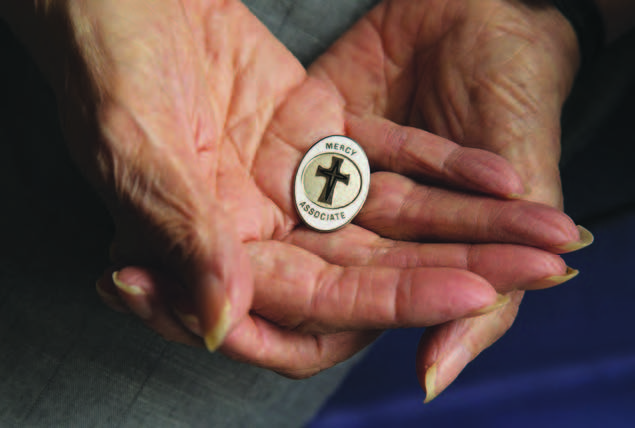By Katie Fiermonti | Photography by Jeff Dachowski
Excerpted with permission from Parable, a magazine of the New Hampshire diocese. [Editor’s note: Dr. Marie Metoyer died on March 17, 2020]
Dr. Marie Metoyer is a living legacy of faith, healing and service. A psychiatrist who specialized in community mental health, the mother of five has long advocated for women’s rights, racial equality and black scholarship. She became a Mercy Associate in New Hampshire in 2016 and is both a grandmother and a theater goer who loves the musical “South Pacific.”
Now 94, Marie has upheld the twin pillars of her life—healing and faith—ever since she was given the example by her mother, Dr. Lena Edwards, who received the Presidential Medal of Freedom in 1964 for championing those same values.
Consider that Marie was New Hampshire’s first African-American female psychiatrist. She has also received numerous honors, including the state’s 2008 Martin Luther King Award and a 2012 service award by U.S. Senator Jeanne Shaheen. What drives her is her Catholic faith.
“God put me on this Earth to become what I could, and to do it in his honor,” says Marie, noting that her great-grandfather, a freed slave named Gabriel Coakley, helped found St. Augustine’s Church in Washington, D.C., during the Civil War.
Gabriel, whose wife, Genevieve, was a seamstress for Mary Todd Lincoln, took a group of Catholics to the White House in June 1864 to ask President Abraham Lincoln for permission to hold a picnic on the White House lawn to raise money to build the first black Catholic Church in the nation’s capital. Lincoln agreed and was said to have attended the event with his wife.
Since then, Gabriel’s descendants have regarded faith and educational excellence as essential to success. Nowhere in the family tree was that more evident than Marie’s own mother. Lena graduated from Howard University Medical School in 1921, married fellow physician, Dr. Keith Madison, and opened her own practice in Jersey City, New Jersey, where she cared primarily for poor and immigrant families. She delivered more than 5,000 babies, became one of the first National Board-certified black female obstetrician-gynecologists in the country, and raised six children of her own.

A daily communicant, Lena enrolled her children at a predominantly Irish parish school. “She made us aware we were capable, and there was the idea that you had to be at 110 percent,” recalls Marie. “There was great expectation that you would live up to your race and your church.”
Lena separated from her husband in 1947 and joined the Third Order of St. Francis. She taught at Howard and, inspired by her faith, did missionary work in Hereford, Texas, where she founded a maternity hospital and ministered to migrant farmers. For this pioneering work, President Lyndon Johnson awarded her the Presidential Medal of Freedom.
Marie, Lena’s oldest child, studied at Cornell School of Medicine, where she met and married her husband, Victor, a former seminarian. One of Cornell’s first black female graduates, Marie spent nearly two decades working as a physician alongside her mother at her Jersey City obstetrics practice. “It was an honor to work with her,” she says.
But the race riots and turmoil of the late 1960s prompted Marie and Victor to rethink New Jersey life. President John F. Kennedy had championed community mental health, and his words reverberated with Marie, who had seen firsthand the need for good mental health care. The family moved to Vermont, where Marie did a psychiatry residency, and then to New Hampshire, where she worked at the Greater Manchester Mental Health Center until her 1996 retirement. Victor died in 2003.
While working in Manchester, Marie met Sister Mary Alice Cassidy, who became her friend and suggested she become an associate. What attracted her to Mercy, says Marie, is the sisters’ “open, welcoming spirit and care for those less fortunate.” She adds, “It [is] a group bringing me closer to God, and as I am getting older, I wanted to be closer to him.”